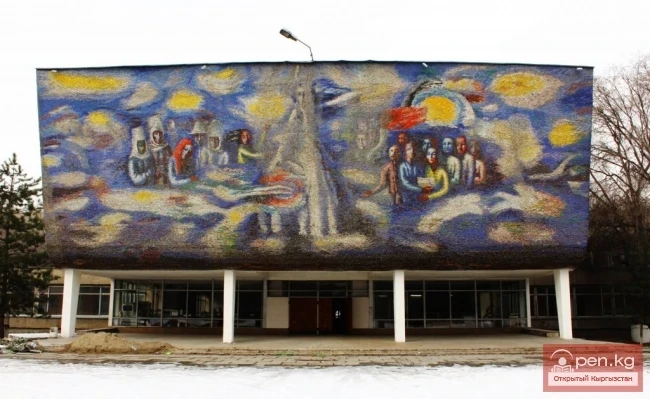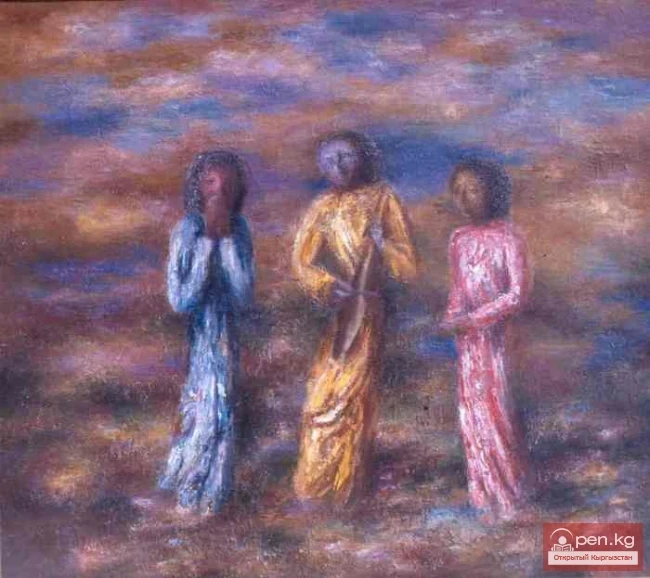The title translates to: "Easel Painting by Satara Aitieva."
Satar Aitieva took his own path in stationary painting, having obtained a degree as a film set designer at VGIK. At the beginning of his creative journey, he still relied on the experience of film masters, creating sketches for an unrealized film based on K. Dzhusubaliev's story "The Sun Has Not Finished Its Self-Portrait." In these sketches, the psychology of pictorial convention emerged, along with a love for pure painterliness and a delicate organization of color composition. His work is characterized by an associative approach to themes, where convention acts as a self-value in all its components, both figurative-narrative and color-painterly. Thus, in all of S. Aitieva's works, the environment transforms into an exquisite play of brushstrokes that create a moiré waviness of the depicted space ("Apricots"). His conditional space is always alive, filled with tenderness and depth, evoking musical associations,
not formed into any specific images, but disturbing and exciting with an elusive uncertainty.
In "Portrait of a Contemporary" (1969) and the group portrait "Poets. Dedication" (1973), the artist conveys the psychological depth of the images through complexly painted works, immersing the depicted individuals in their world of thoughts while carefully preserving their mystery.
In the painting "My Father" (1975), which reflects the theme of the Great Patriotic War, the plot-content aspect is also conveyed purely associatively: the orphaned mother and son sit at a low round table, each experiencing the bitterness of loss in their own way. The mood of sadness is created by the images of an old woman in a traditional dress, a boy, and, significantly for S. Aitieva's work, the character of the painterly and coloristic solution.
As a rule, the paintings of this artist are devoid of plot; their pathos and figurative depth are achieved through the expressiveness of form. In a number of works ("Song," 1981), the artist simplified the image of a person to a schematically volumetric sign, a kind of puppet with a ghostly life flowing in a closed space-time according to its microcosmic laws.
Outwardly static works by S. Aitieva possess the quality of internal movement, the passion of vague dreams, expressed, however, through a clearly formulated painterly system.
A new step in the development of his unique talent is the diptych "The Apotheosis of War," created for the 40th anniversary of Victory in the Great Patriotic War. In this diptych, the artist managed to express a strong rejection of war through the theme of women.
While works like "Song" have a chamber-like sound, the diptych "The Apotheosis of War" resonates like a symphony of complex social content. Here, the artist rejected any narrative illustration in addressing the theme, resorting to the language of allegory, which expresses an abstract concept through a concrete image. The naked female figures, painted with exceptional plastic power, are depicted in a kind of ritual ecstasy, the character of which is deciphered by the dynamics of the spatial environment created by the polyphony of color and texture whirlwinds.
Read also:
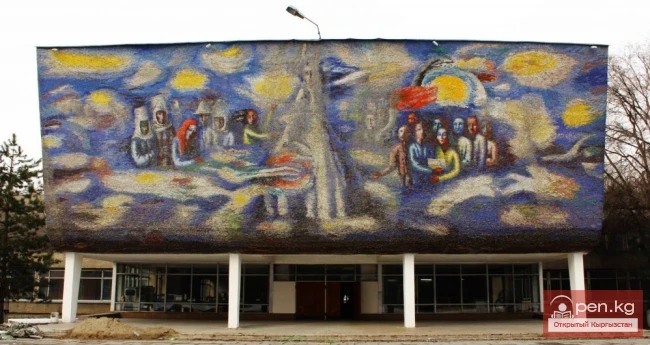
The Original Associative Thinking and Artistic-Plastic Mastery of S. Aitieva
Mosaic of Satyr Aitiev The mosaic by Satyr Aitiev on the laboratory building of the Kyrgyz State...
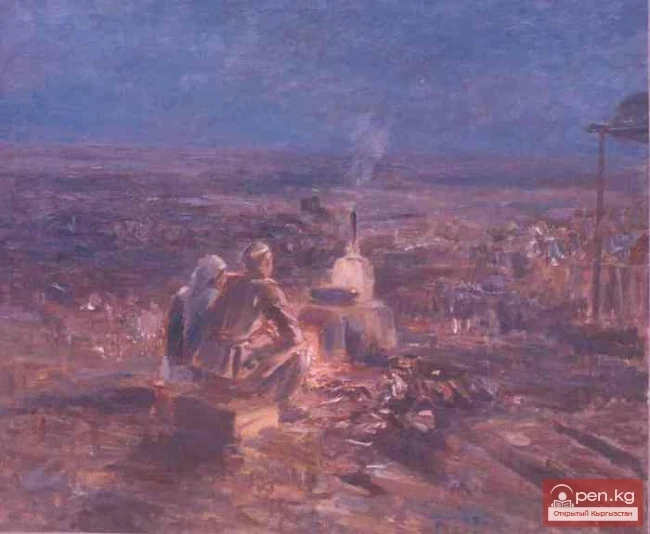
Monumental Artist V. G. Butorin
The monumentalist artist Vladimir Georgievich Butorin most vividly and originally expressed...
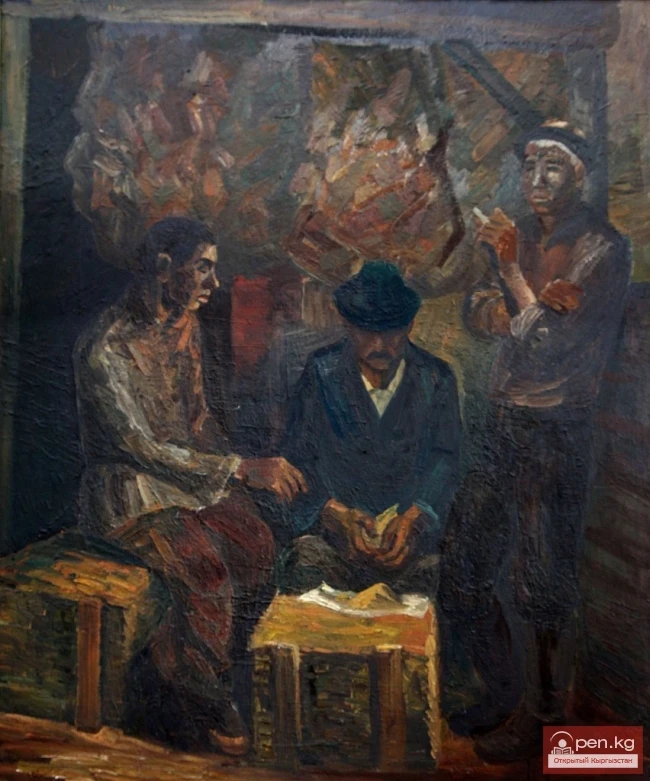
Thematic and Plot Painting of A. Asrankulov and A. Beyshenov
Thematic Painting Aman Asrankulov works in the field of portrait and thematic composition. In such...
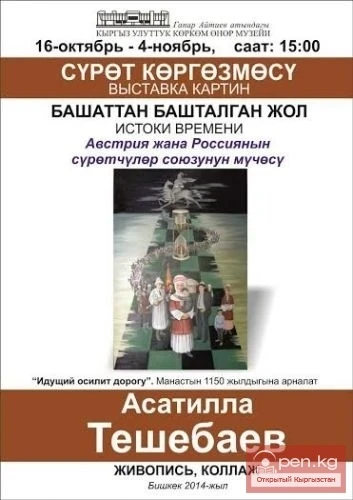
Personal Exhibition of Asatilla Teshbaev "Origins of Time"
From October 16 to November 4, at the G. Aitiev National Museum of Fine Arts, there will be a...
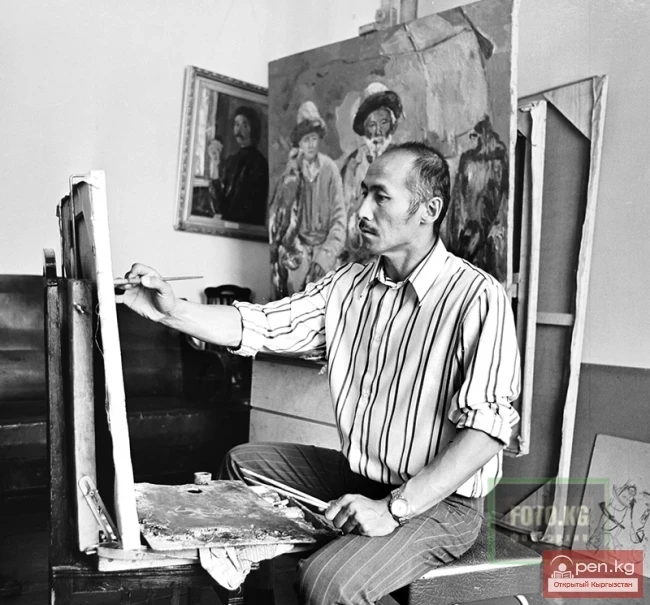
Talents of Kyrgyzstan
Success was more easily achieved through traditional means of plein air painting, especially...
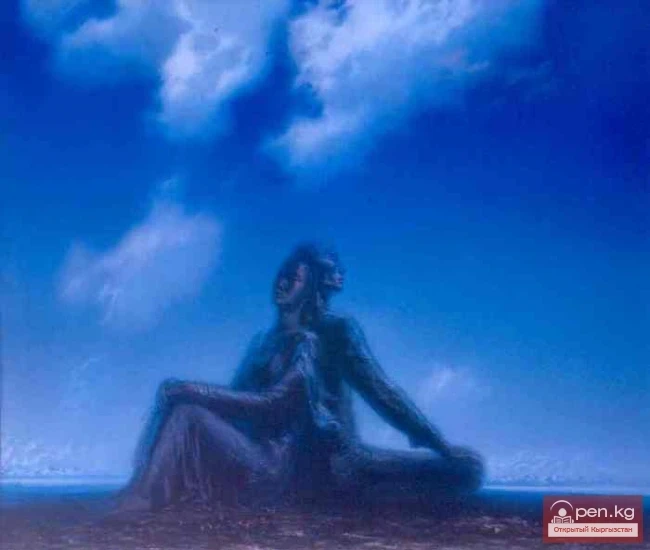
The Easel Painting of Zhoomart Kadraliev
Joоmart Kadraliev also resorts to the language of allegory, but his allegories have a more...
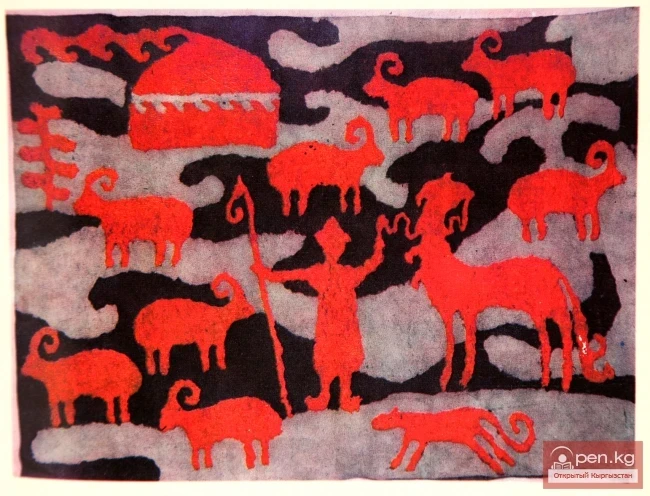
Applied Artist Jumabay Umetov
Jumabay Umetov is an applied artist by nature and profession, who engages extensively in landscape...
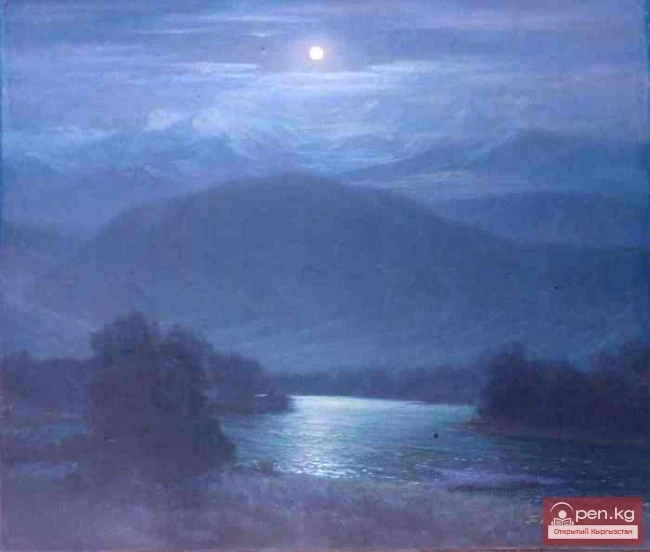
Works of Dzhumabayeva and Koichiev
Tursunbek Koichiev addressed the revolutionary theme in a monumental and generalized manner in his...
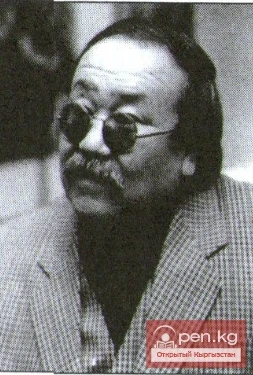
Dzhumabajev Dzhambul
Dzhumabajev Dzhambul Painter. Honored Worker of Culture of the Kyrgyz Republic. Born on December...
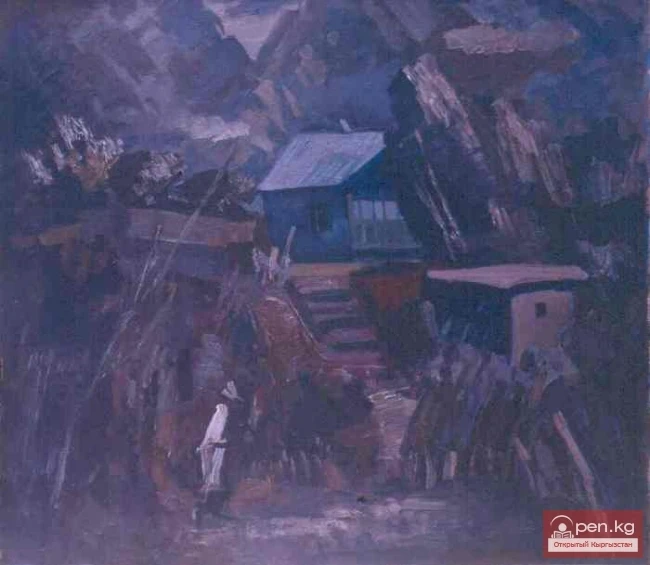
The Search for Sapara Torobekov
The contradictory search for Sapara Torobekov. In his painting, two lines develop: tonal-plein...
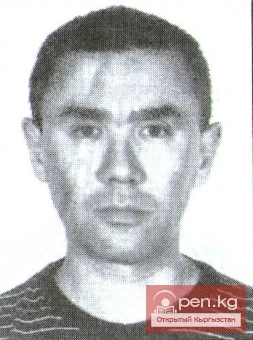
Saliev Erkin Azizovich
Saliev Erkin Azizovich Painter. Honored Worker of Culture of the Kyrgyz Republic. Born on June 29,...
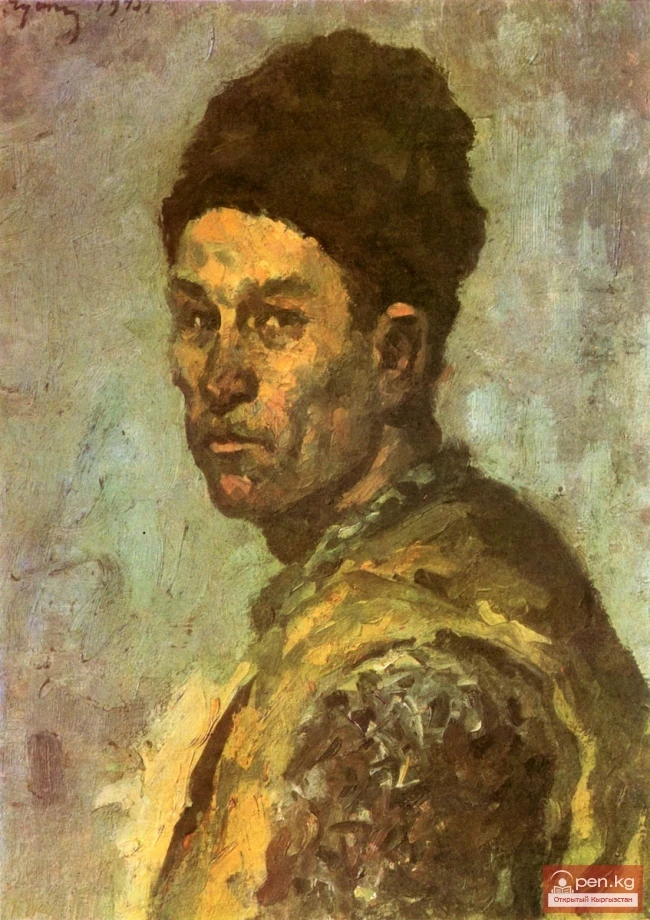
The Creativity of S. Chuykov
The restlessness of the creative interests of artists, sensitive to the most important aspects of...
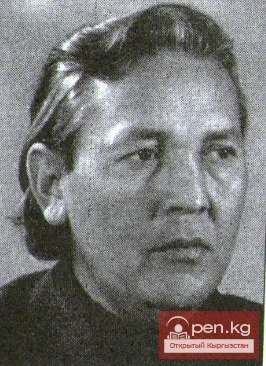
Jusupov Kazbek
Jusupov Kazbek Film artist. Born on September 12, 1937, in the village of Oktyabrskoye, Moscow...
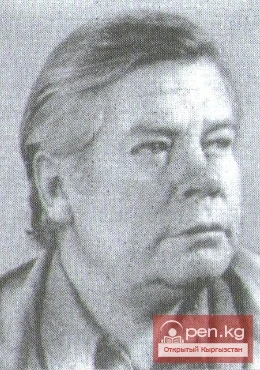
Voronin Alexander Fyodorovich
Voronin Alexander Fedorovich Monumentalist. Painter. Born in 1935 in the village of Balaki,...
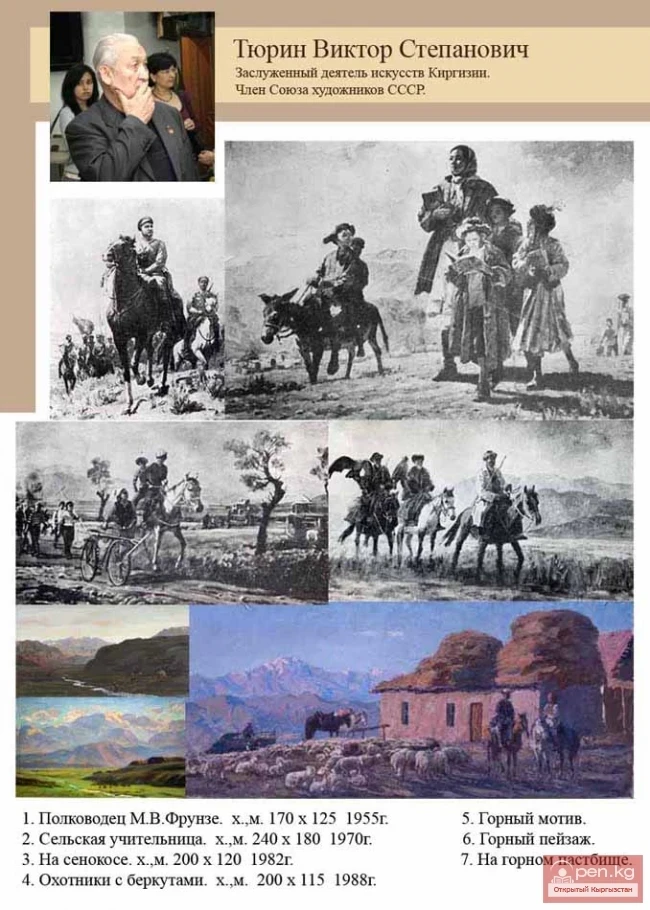
Painting in Kyrgyzstan - Mid-20th Century
Artists of the Mid-20th Century For the centenary of Kyrgyzstan's voluntary accession to...
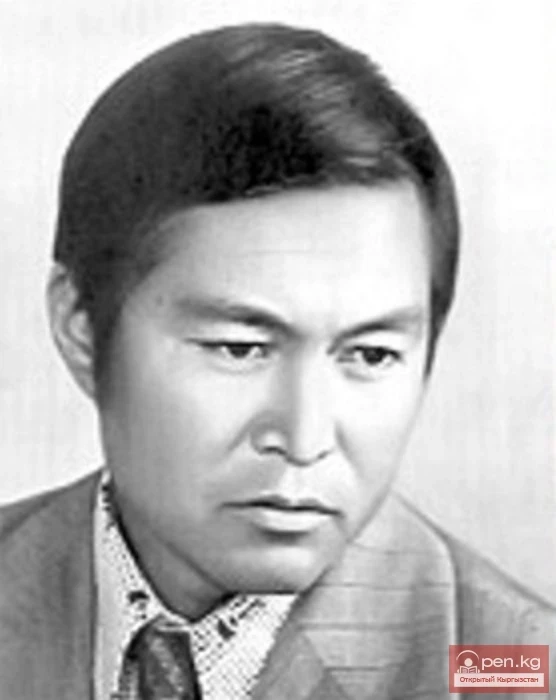
Original Artist Sabitjan Bakashev
Painter and easel artist S. Bakashev with a heightened sense of plasticity Sabitjan Bakashev...
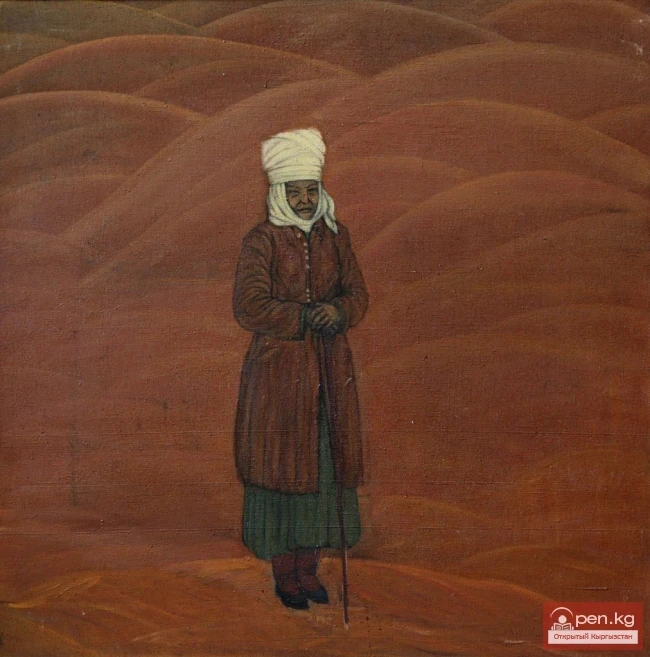
The Creativity of B. Jumabaev
Belek Jumabaev, endowed with vivid imagination and sharp observation, was the first to paint...
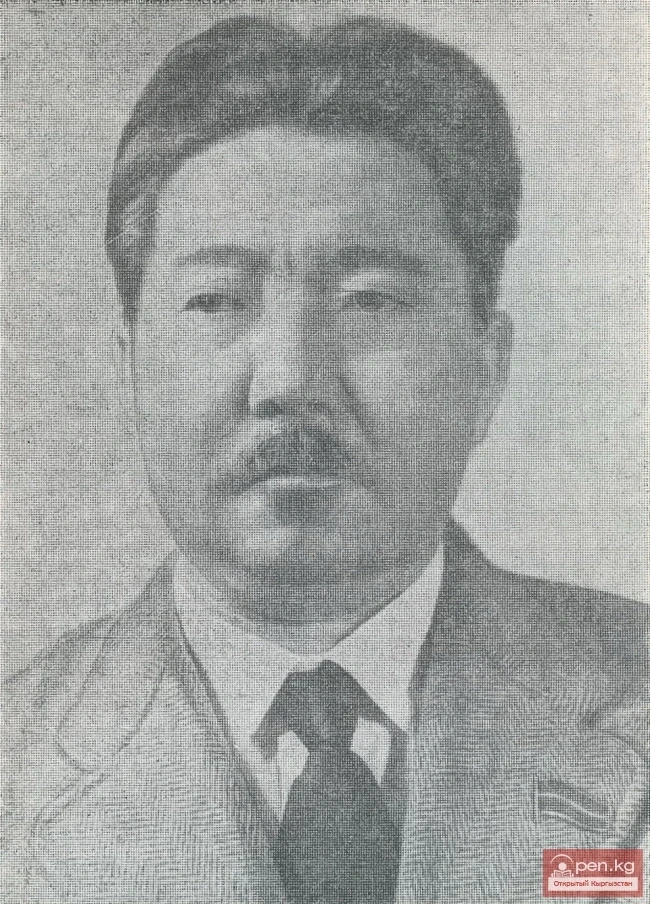
The Creativity of Gapar Aitieva
The creativity of Gapar Aitiev in the 1960s and 70s was exceptionally fruitful: it was the peak of...
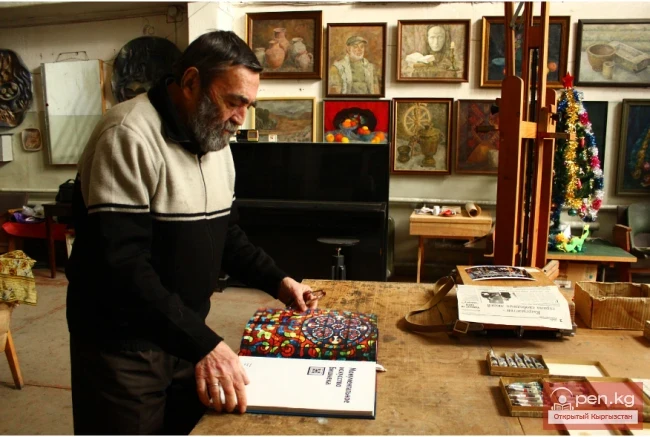
Wall painting, mosaic, panels, reliefs by A. N. Kamensky
The Versatility of Alexei Nikolaevich Kamensky. Alexei Nikolaevich Kamensky has developed into a...
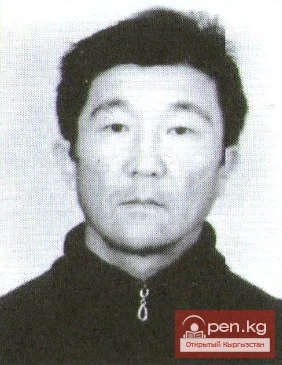
Zhaylobaev Sharipbek Mukhanovich
Zhailobayev Sharipbek Mukhanovich Theater and film artist. Born on February 18, 1960, in the city...
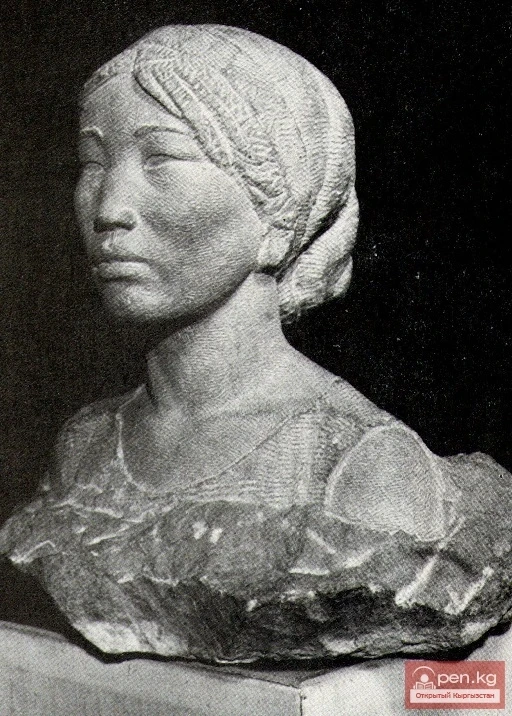
Master of Chamber Psychological Portraits David Vladimirovich Kheidze
As a master of the chamber psychological portrait, David Vladimirovich Kheidze laid the foundation...
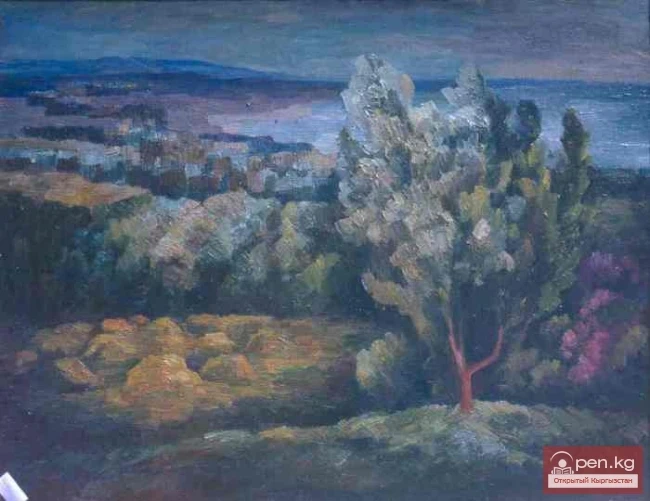
Masters of the Easel of the Kyrgyz SSR
Kyrgyz Masters of the Easel In the 1970s, Murat Bekdzhanov established himself as a fine...
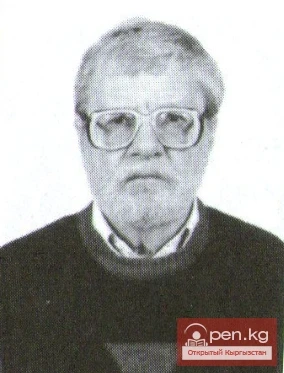
Butorin Vladimir Georgievich
Butorin Vladimir Georgievich Monumentalist. Painter. Honored Cultural Worker of the Kyrgyz...
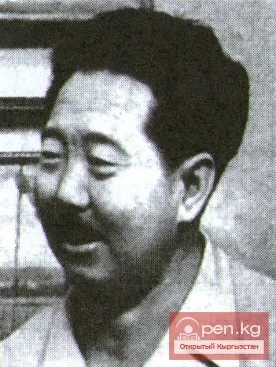
Aitiev Gapar Aitievich
Aitieva Gapar Aitieviсh Painter. Corresponding Member of the Academy of Arts of the USSR,...
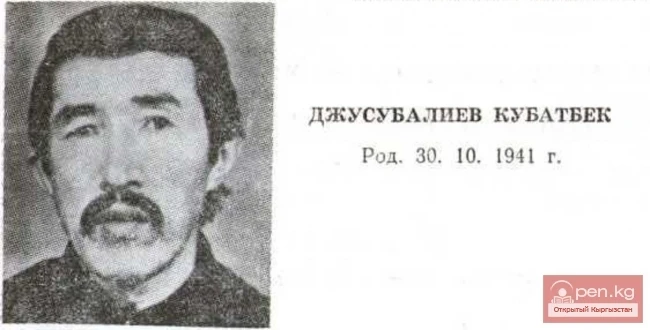
Prose Writer Kubatbek Dzhusubaliev
Prose writer K. Dzhusubaliev was born in the village of Kerdegey in the Alay district of the Osh...
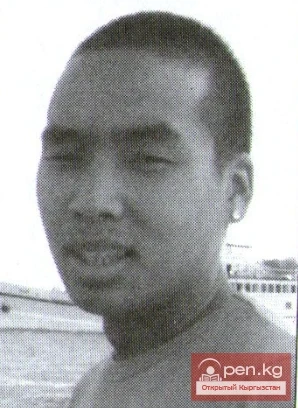
Erbol Dogdurbek
Erbol Dogdurbek Born on February 9, 1986, in the city of Karakol, Issyk-Kul region. In 2003, he...
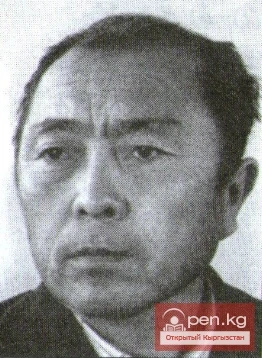
Amankojoev Kubanychbek
Amankozhoev Kubanychbek Painter. Born on February 19, 1934, in the village of Chayek, Jumgal...
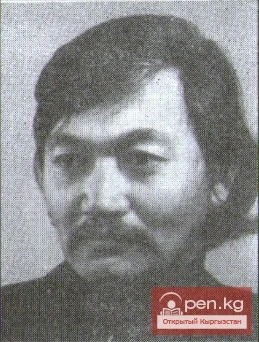
Mukambetov Mukhtar
Mukhanbetov Mukhtar (1937-1996) Painter. Honored Worker of Culture of the Kyrgyz Republic. Born on...

Schematic Representation of the Formal Solutions of Kubanychbek Amankozhoev
Paintings by Kubanychbek Amankozhoev As mentioned earlier, the first artist to somewhat depart...
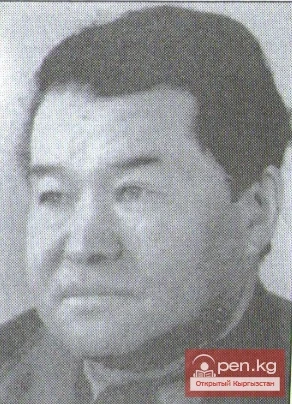
Kyrimbekov Kulchoro
Kerimbekov Kulchoro (1922-1989) Painter. Honored Worker of Culture of the Kyrgyz Republic. Born on...
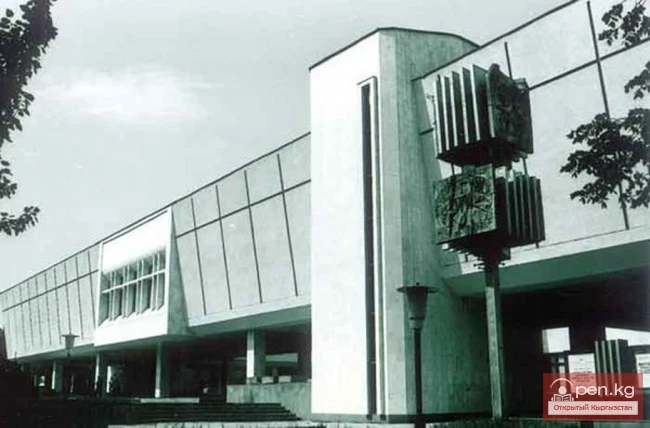
Kyrgyz National Museum of Fine Arts named after Gapar Aitiev
Art Gallery in Kyrgyzstan The Gapar Aitiev National Museum of Fine Arts is the main artistic...

Kyrgyz Watercolor Painting
Expressive genre sheets were created by S. Chokmorov ("Men Sitting," 1964), A. Ostashev...
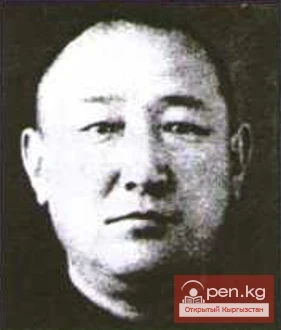
Ilyasov Satar Ilyasovich
Ilyasov Satar Ilyasovich (1908-1987), Doctor of Historical Sciences (1967), Professor (1968),...
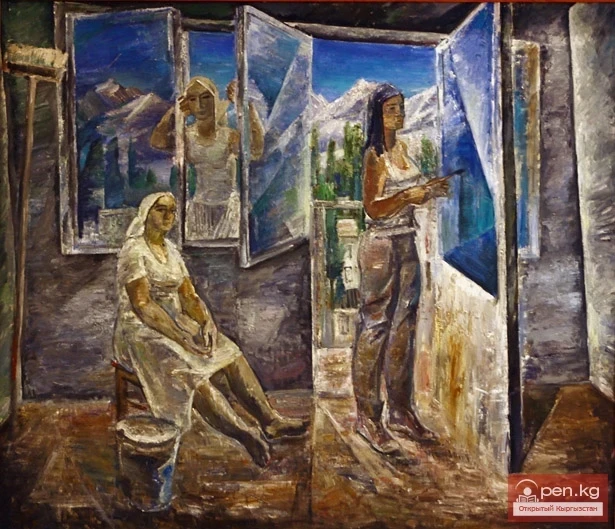
The Creativity of Mukhtar Mukambetov
The working days and traditional way of life are the themes of Mukhtar Mukambetov's...
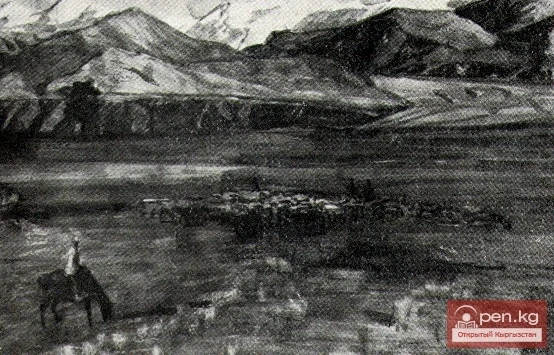
Years of Hard Work Devoted to Watercolor by R. Nudel
Years of hard work were devoted to the watercolors of R. Nudel. His watercolors "are mainly...
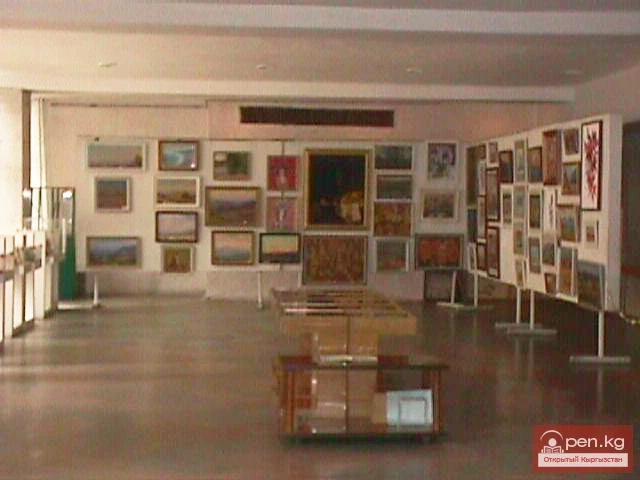
Academicism in the Works of Kyrgyz Painters
Academicism of Kyrgyz Painters Kulchoro Kerimbekov, Jakul Kozakhmetov, and Altymysh Usubaliev, who...
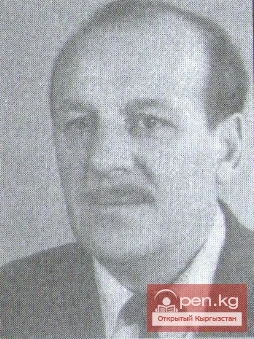
Vladimir Grigoryevich Rogachev
Vladimir Grigoryevich Rogachev Graphic artist. Born in 1928 in Kokshetau, Kazakh SSR. Lived in...
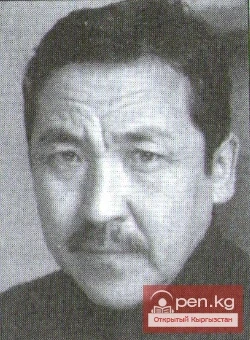
Talant Kurmanbekovich Ogobaev
Ogobayev Talant Kurmanbekovich Painter. Born on September 25, 1955, in the city of Frunze. In...
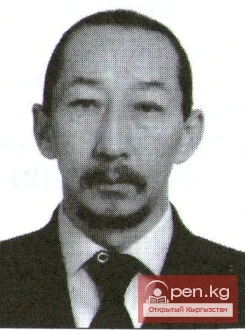
Van-Yu-Tsai Pavel Mikhailovich
Van-yu-tsai Pavel Mikhailovich Painter. Born on January 6, 1956, in the city of Przhevalsk,...
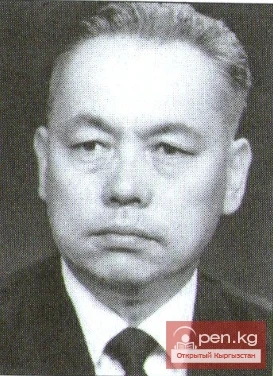
Moldakhmatov Asanbek
Moldakhmatov Asanbek (1923-1993) Theater artist. Painter. Honored Artist of the Kyrgyz SSR. Born...
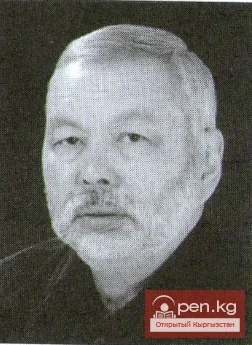
Moldakhmatov Zhyldyzbek Asanbekovich
Moldakhmatov Zhyldyzbek Asanbekovich Monumentalist. Painter. Honored Worker of Culture of the...
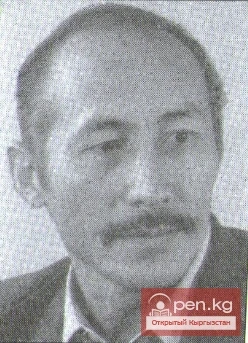
Chokmorov Suimenkul
Chokmorov Suimenkul (1939-1992) Painter. People's Artist of the USSR. Laureate of the State...
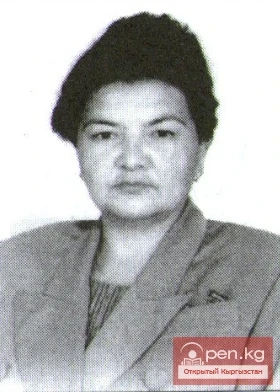
Dabaeva Ainura Kyrgyzbaevna
Dabaeva Ainura Kyrgyzbaevna Applied artist, painter. Honored Educator of the Kyrgyz Republic. Born...
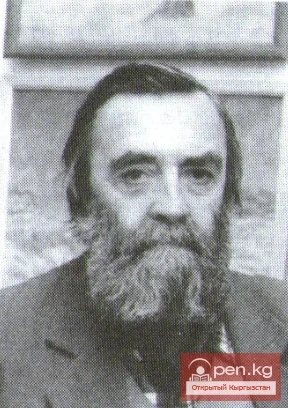
Aleksey Nikolaevich Kamensky
Kamensky Alexey Nikolaevich Monumentalist. Painter. People's Artist of the Kyrgyz Republic....
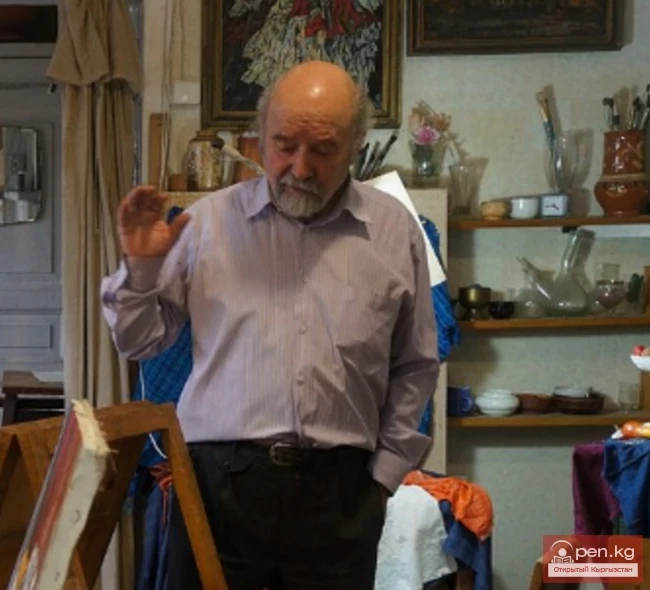
The Creative Face in the Field of Monumental Painting of Yevgeny Stepanovich Gerdyuk
The Independence of Artistic Thinking of Yevgeny Stepanovich Herdyuk. Yevgeny Stepanovich Herdyuk...
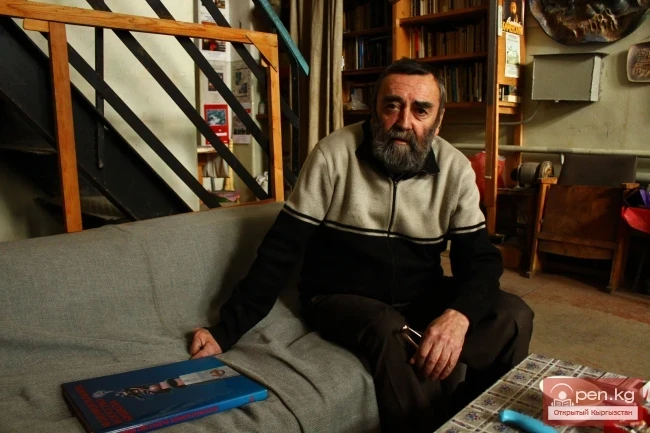
Alexey Nikolaevich Kamensky
If A. Voronin early established himself as a realist artist with a distinctive creative face, then...
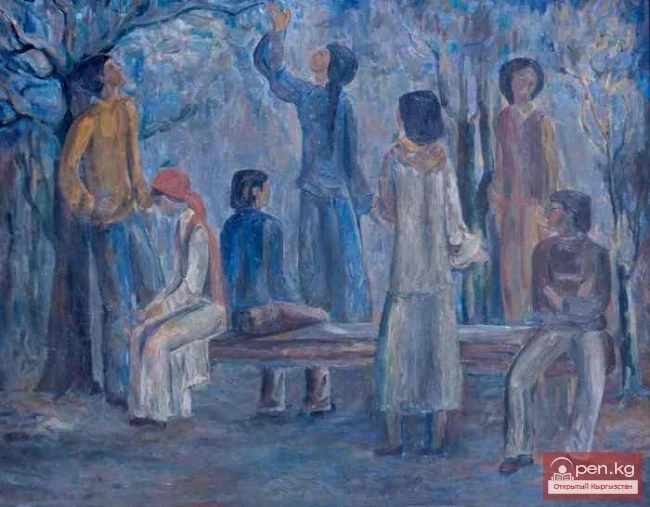
Monumentalist, Painter Sabitjan Bakashev
Sabitjan Bakashev places great importance on the beauty of pictorial texture and the brightness of...
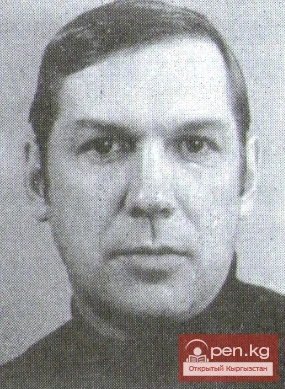
Vladimir Alexandrovich Gerasimov
Gerasimov Vladimir Alexandrovich Painter. Project designer. Born on April 7, 1947, in the village...
